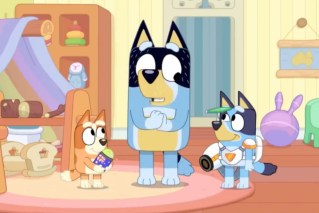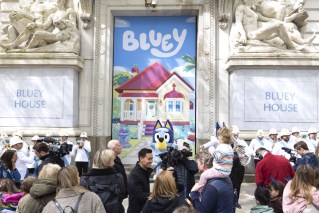Dead funny: When did comedy become the news?


• Subscribe to The New Daily’s free newsletter here
Right now, the way we consume news is experiencing a revolution of sorts.
While established networks cut programs and staff and news consumption shifts to online forums, a steadily growing crowd of up-and-comers waits in the wings to step in and take control.
They’re sarcastic, creative, funny, satirical and opinionated, and they demand to be heard.
• Stephen Colbert replaces David Letterman
• Tony Abbott the butt of US talk show jokes
Lead by American pioneers like Jon Stewart of The Daily Show and Stephen Colbert, local and international broadcasters are picking and choosing the issues they want to discuss and how they want to discuss them.
And it’s paying off: a recent study by the University of Pennsylvania’s Annenberg Public Policy Centre found that each episode of Stephen Colbert’s late night political satire program served as “an extended civics lesson” for American viewers.
Colbert’s episodes during the last US election were found to be more informative about the role of money in politics than network new bulletins, cable news, newspapers and talk radio.
A rational fear
“People want to understand what’s happening around them in a more entertaining way,” says Dan Ilic, producer of Australian online news commentator A Rational Fear.
“There’s no Daily Show in Australia, so I thought why not create our own one and have fun doing it? We pick topics that people might find boring or dense and try and explain them in an entertaining way.”
Launched online earlier this year, A Rational Fear consists of crowd-funded videos, social media pages and live performances from comedians. It has no established website – just a Tumblr page – no television airtime and a limited budget, but its witty videos pull thousands of viewers.
Ilic and his team’s ethos is that, while a Packer/Gyngell punch-up has little consequence for the life of an average person, a Medicare co-payment does. Why not make it just as palatable?
Juice Rap News
Juice Rap News, a musical current affairs program filmed out of a Melbourne garage, has a similar outlook.
“Delivering a bulletin to restore your faith in the fourth estate,” the website proclaims, “make you nod your head to the beat even as you shake it in disbelief.”
Calling on donations and merchandise to remain independent, their news “raps” are catchy and on the pulse, breaking down the Israel/Palestine conflict as they break down the beat. A pied piper for the distraction generation.
Vice News
Meanwhile, the Internet’s answer to Four Corners is brewing over at Vice, the edgy, occasionally grimy multi-platform publication trawling the underside of society at the edges of the globe.
Their punchy Vice News mini-documentaries know no bounds; covering everything from “Life as an illegal immigrant in Greece” to “Corruption, Cocaine and Murder in Trinidad”.
It’s dark stuff that couldn’t find a time slot on traditional television, but it spreads like wildfire online.
Stephen Colbert, Jon Stewart, John Oliver and co.
Lastly, there are the benchmarks for this current news revolution: the big-name hosts of late night US talk shows.
Their budgets (and pay cheques) are big and their reach is huge, yet they refuse to shy away from controversy or humour.
When French DJ duo Daft Punk failed to make an appearance on his show, Stephen Colbert responded with a dorky dance video to their hit song “Get Lucky”. The back-up video got more viral success than a straight performance from the duo ever could have.
When political satirist Jon Stewart welcomed Hollywood actor Robert Pattinson on to the Daily Show to discuss his high-profile split from Kristen Stewart, he handed him a tub of Ben & Jerry’s ice cream, sparking an outpouring of internet love.
Only this week, British host John Oliver’s overtly sarcastic profile of Tony Abbott on his US program Last Week Tonight hit Australian shores almost immediately after it made it to American screens.
The bottom line
As digital pioneers jostle at the sidelines for their time in the limelight, slowly pulling more funding, awareness and popularity, traditional broadcasters have some pretty extensive changes to make. Whether they can incorporate an edge of opinionated vigilante journalism into their old models remains to be seen, but one thing is certain: They’ve got to adapt, or they’ll get trampled by the eager upstarts.








